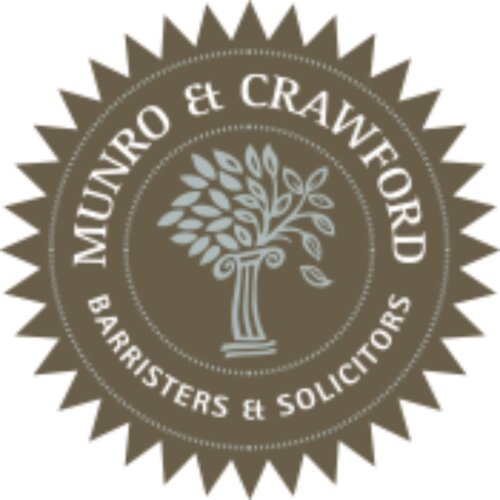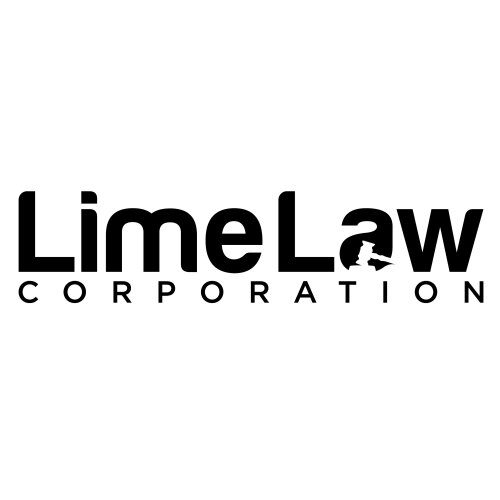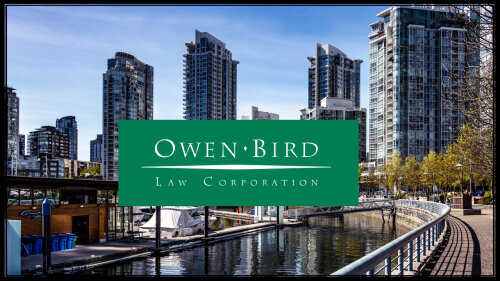Best Land Use & Zoning Lawyers in Vancouver
Share your needs with us, get contacted by law firms.
Free. Takes 2 min.
Free Guide to Hiring a Real Estate Lawyer
List of the best lawyers in Vancouver, Canada
About Land Use & Zoning Law in Vancouver, Canada
Land use and zoning laws in Vancouver, Canada govern the use and development of land and define how premises in specific geographic zones can be used. These laws segregate zones into commercial, residential, industrial, and agricultural, ensuring that the uses are compatible and to prevent land-use conflicts. They also regulate property restrictions, permitted property uses, and modifications on the property, such as building a deck or storing a boat.
Why You May Need a Lawyer
In numerous circumstances, you may need a legal professional's help. This could involve designing a land use plan, applying for zoning changes, or handling boundary disputes. Furthermore, a lawyer can assist you with navigating the complex bureaucratic system, obtaining necessary permits, resolving conflicts over land use, and representing you in public or administrative proceedings.
Local Laws Overview
The City of Vancouver’s Zoning and Development By-law provides detailed guidance on local land use and zoning laws. It outlines the zoning districts that exist in Vancouver, the types of buildings allowed in each, as well as restrictions on properties' size, height, coverage, and location. It also dictates the off-street parking regulations. Laws about the Special Economic Zones (SEZs) focus on providing an optimized business and manufacturing environment by granting special economic policies.
Frequently Asked Questions
What is the process for applying for a zoning change in Vancouver?
Zoning amendments start with an application to the Planning, Urban Design, and Sustainability Department. If approved by the department, it is forwarded to the City Council for consideration. If it gets City Council's approval, a public hearing is scheduled. Following the hearing, City Council decides to reject, approve, or approve with conditions.
What are the most common zoning designations in Vancouver?
Common zoning designations include One- and Two-Family Dwelling Districts (RS), Multiple Dwelling Districts (RM) and Comprehensive Development Districts (CD-1) among others, each allowing for different kinds of development activities.
Can I operate a business from my residential property?
This depends on the type of business and the zoning designation of your property. Many zones in Vancouver permit home-based businesses, provided they meet specific requirements set out in the Zoning and Development By-law.
What happens if I build something that is not allowed by zoning laws?
If a property owner builds or changes something that does not comply with zoning laws, The City of Vancouver may issue orders or fines. In some cases, the city might require the owner to restore the property to its prior condition.
Can zoning changes affect the value of my property?
Yes, zoning changes can directly affect the value of your property. Depending on the change, it might increase or decrease its value. A lawyer could provide advice tailored to your situation.
Additional Resources
The Vancouver City Hall, as well as the Planning, Urban Design, and Sustainability Department, are fundamental resources. The Zoning and Development By-law of Vancouver is readily accessible online, providing a wealth of detailed information. Local legal and real estate professional bodies also offer resources and support.
Next Steps
If you need legal assistance in Land Use & Zoning, consult with a local attorney or contact a legal aid society. They can guide you through the process, provide advice tailored to your situation, and represent you in legal or administrative proceedings if necessary.
Lawzana helps you find the best lawyers and law firms in Vancouver through a curated and pre-screened list of qualified legal professionals. Our platform offers rankings and detailed profiles of attorneys and law firms, allowing you to compare based on practice areas, including Land Use & Zoning, experience, and client feedback.
Each profile includes a description of the firm's areas of practice, client reviews, team members and partners, year of establishment, spoken languages, office locations, contact information, social media presence, and any published articles or resources. Most firms on our platform speak English and are experienced in both local and international legal matters.
Get a quote from top-rated law firms in Vancouver, Canada — quickly, securely, and without unnecessary hassle.
Disclaimer:
The information provided on this page is for general informational purposes only and does not constitute legal advice. While we strive to ensure the accuracy and relevance of the content, legal information may change over time, and interpretations of the law can vary. You should always consult with a qualified legal professional for advice specific to your situation.
We disclaim all liability for actions taken or not taken based on the content of this page. If you believe any information is incorrect or outdated, please contact us, and we will review and update it where appropriate.














